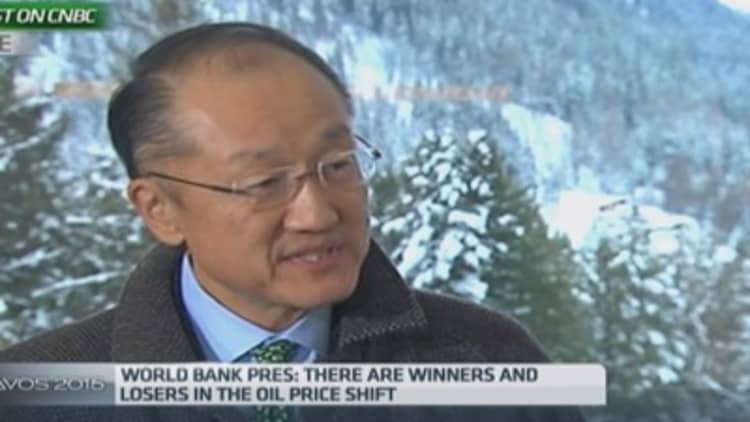India's newly-elected leader Narendra Modi can count one important official as a big fan: The president of the World Bank.
Jim Yong Kim said at the World Economic Forum on Saturday that the new Indian prime minister is making "extremely promising" reforms.
Kim spoke on the final panel discussion of the conference in Davos, Switzerland. He cited Modi's efforts to reduce economic bureaucracy, such as allowing the trucking of goods between Indian states without checks.
Read More Oil price may boost growth by 15-20%: World Bank

Kim also noted how low oil prices would help boost economic growth in countries like India that are net importers of fuel. The World Bank chief's comments came during a panel discussion hosted by CNBC's Geoff Cutmore, "The Global Agenda 2015."
Modi was elected in a landslide victory last May, and has earned widespread plaudits for his program of economic reform. Kim's remarks in Davos presaged a visit there by U.S. President Barack Obama, who on Sunday appeared with Modi to unveil plans to and a strategic defense partnership with one of the largest emerging economies in the world.
The World Bank projects gross domestic product growth in India of 6.4 percent in 2015, up from 5.6 percent in 2014 and 5.0 percent in 2013. That figure is expected to be even higher for 2016 at a full 7 percent.
Modi was not at WEF, but his government paid for an Indian themed lounge and "Made in India," advertising around Davos during the conference.
Read MoreWind company boss sees no issue with low gas price
Kim also met with Modi earlier in January in a trip to the Indian state of Gujarat.
"Prime Minister Modi and his government are quickly putting in place the building blocks for even more rapid growth, streamlining the national regulatory structure, using public funds more efficiently, and promoting social inclusion," he said in a speech during the visit.
--Reuters contributed to this report






